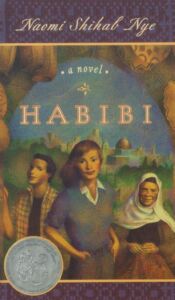
by Naomi Shihab Nye
Simon & Schuster, 1997
Naomi Shihab Nye is an American poet and novelist of some renown. She won the NSK Neustadt Prize for Children’s Literature in recognition of her entire body of work in 2013, placing her on a plane with eminent children’s writers Vera Williams and Katherine Paterson. She was named Young People’s Poet Laureate for 2019-2021 by the Poetry Foundation.
Palestinian on her father’s side (her mother is American), Nye credits a visit to her grandmother in a West Bank village for its impact on her political perspective. Running through her poems about “Palestine” is her conviction that her homeland was stolen by the Zionists.
Nye would certainly not have garnered the recognition she did without striking the pose of a fair-minded and humane campaigner for human rights, a Palestinian with Israeli and Jewish friends. And indeed, two of the three excerpts from poems used as epigraphs for Habibi are by Jews who acknowledge the Palestinian narrative, poets Yehuda Amichai and Anndee Hochmann (“We are challah and hummus, eaten together to make a meal.”).
Nye’s Habibi makes an effort to present some elements of the Jewish Israeli perspective on the conflict. Liyana, its protagonist, is a Palestinian-American teenager whose family moves back to her father’s ancestral home, near Ramallah on the West Bank, after the signing of the Oslo Accords in 1993. To underline her goodwill, Nye, a Palestinian-American poet, has Liyana meet Omer, a Jewish boy.
“I mean, [Liyana explains] I understand it mostly from the Arab side because my father’s family lost their house and their money in the bank and lots of their community when my father was a boy and the Palestinians were suffering so much, just kicked around till recently as if they were second-class human beings you know they couldn’t even show their own flag or have hardly any normal human rights like the Jews did till recently and it’s getting better only slowly you know my relatives have to get permits for things all the time and it wasn’t that way when my father was little, things were more equal then and of course I know the Jewish people suffered so much themselves, but don’t you think it should have made them more sensitive to the sufferings of others, too?”...
He stared at her quietly. “I do” (165-166).
Omer is the right kind of Israeli: he criticizes his country.
Nye also has her characters voice unease with the Jewish idea of being a “chosen people” without really understanding the complexities of the trope. Liyana thinks it has to do with a sense of “being ‘chosen’ over anybody else” [my italics]. Though she allows Omer to present a different angle on Jewish chosenness -- “Maybe Jews are also chosen to suffer. Or to be better examples” -- in the end she concludes, “It seems like big trouble any way you look at it. I’m sorry, but I don’t like it. Do you believe you’re chosen? It sounds like the teacher’s pet” (178-179).
Pace Liyana, chosenness in the Hebrew Bible means only that God chose the descendants of the patriarch Abraham, who first acknowledged the one God, to communicate the idea of God’s oneness to a pagan world. It does not mean that Jews believe they are better than others (“the teacher’s pet”). To the contrary, according to the Hebrew prophet Amos, it means that God will be particularly stringent with the Jews:
You alone have I singled out of all the families of the earth. That is why I call you to account for all your iniquities (Amos 3:2).
The proof that chosenness has nothing to do with racial superiority is that Jews believe the Messiah will descend from Ruth, a non-Jew born among the Moabites, the Hebrews’ enemies.[i]
But perhaps, at bottom, Nye attacks the Jewish idea of chosenness because it underpins the millennia-long Jewish claim that God selected them to live in the land of Israel, a claim that Nye herself cannot accept.
Though Habibi is not anti-Semitic in intent, the author’s misreading of Jewish chosenness repeats an anti-Semitic trope that has perpetuated resentment of the Jew throughout history.
The book also presents a litany of uncontextualized criticisms of Israeli regulations and practices related to the occupation of the West Bank. Sitti, the grandmother, complains of “how mean the Jewish soldiers are to us. They don’t even know who we are!” Uncle Daoud is demeaned at a checkpoint. A Jewish man in a yarmulke calls Arabs “animals.” Soldiers searching the home of their cousin Mahmud break plates, smash bathroom fixtures and tear apart comforters.
A marketplace bombing by Palestinians isn’t justified (the family condemns it), but Liyana tries to explain it:
Maybe it was done by the Arab father whose ten-year-old son was shot by Israeli soldiers last week. Maybe it was done by the brothers of the tortured prisoners Poppy met all the time, or the cousin of the mayor who lost both legs when the Israelis blew up his car. Did people who committed acts of violence think their victims and their victims’ relatives would just forget (235)?
It's not wrong to tell young readers that some Israeli soldiers know little and understand less about the culture of West Bank Arabs, and even show Arabs little respect. That’s part of a much larger picture. But what is behind the soldiers’ invasions of Arab homes? Are they harassing people for their pleasure, or searching for weapons and explosives? How many of these accusations are verifiable, and how many are based on unsubstantiated hearsay? We can’t know. But they pack emotional punch, and create an image of Israelis that will stay with young readers long after they finish the book.
For an analysis of Shihab Nye’s anti-Israel poetry for young readers, see “Naomi Shihab Nye: Maligning Israel for Young Readers” on the CAMERA.org website.
-Reviewed by Marjorie Gann/April 2, 2025
[i] Telushkin, Joseph. Jewish Literacy: The Most Important Things to Know About the Jewish Religion, Its People, and Its History. NY: William Morrow, 2001. p. 557.

 Education Institute
Education Institute
